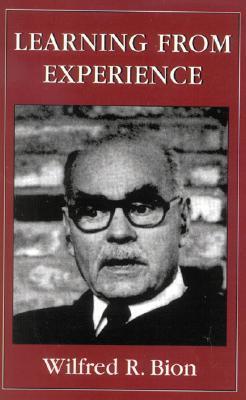This book is a wasteland of cold abstraction, produced by a deeply traumatized person as his picture of fundamental psychic reality. Heartbreakingly empty of any warmth or texture, Learning from Experience is a daytrip to the dark side of the moon. The prose in Bion's memoir The Long Weekend is exquisite--he could write wonderfully when he wanted to. That's why the militantly bad writing in the four books from 1960-1970 (including Learning from Experience) is so diagnostic of a sustained, manic attack on human subjectivity, beauty, and understanding. Emulate this overrated tyrant at your peril.
Also: do not fall for the all-too-common claim that Bion’s four epistemological books are “difficult, but worth it.” They are not difficult—they are slow, murky, schizoid, and ugly, but not especially difficult—and they are not worth it. Bionism is a cult, and its devotees are invested in a subculture of reverence, hagiography, and mystification. Adorno is difficult, but worth it. Kant is difficult, but worth it. Bion is, for the most part, full of shit, and his disciples are even more so. Caveat emptor.

